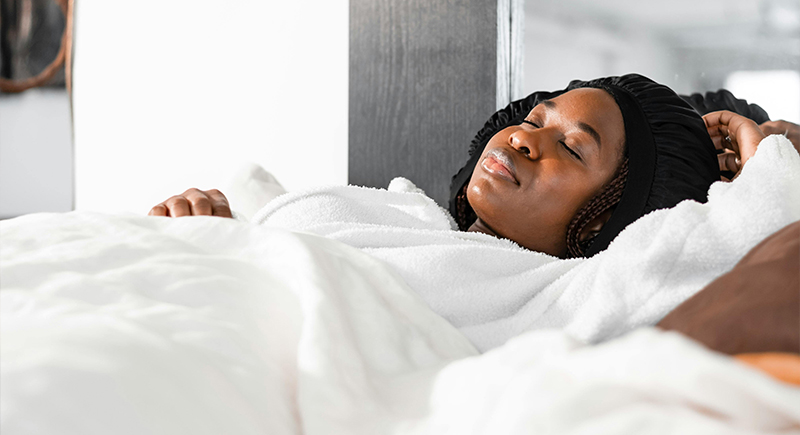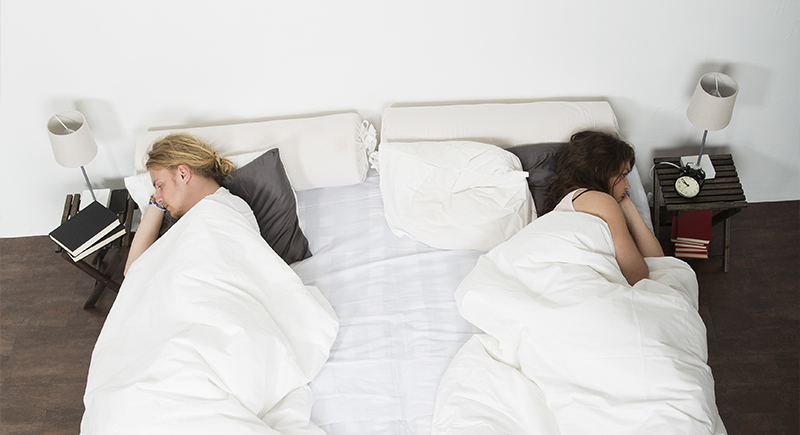Couples Sleeping in Separate Rooms Might Actually be a Good Idea
Ever wake up feeling groggy and irritable because of your partner’s snoring? Or maybe they’re a restless sleeper who turns the mattress into a trampoline. If you’ve been there, you’re not alone. For centuries, couples have shared a bed as a symbol of unity, but more and more are rethinking this tradition—and for good reason. Choosing to sleep in separate rooms –a phenomenon called sleep divorce–might just be the secret to a stronger, healthier relationship.
Sleep Without Disruptions

Credit: iStockphoto
Sharing a bed sounds romantic, but it often isn’t restful. One partner’s sleep-related behaviors can become the other’s sleepless nightmare. Sleeping in separate rooms allows both people to enjoy uninterrupted rest, which means better mornings and fewer cranky arguments over breakfast. Sleep matters, and sometimes, loving someone means letting them have their own space to get it.
Individual Sleep Environments

Credit: pexels
No two people are exactly alike when it comes to their ideal sleep conditions. One of you might like the room cool, while the other prefers it warm and cozy. With separate bedrooms, you can each create the perfect sleep space—your own mattress, pillows, blankets, and even lighting—without compromising or tiptoeing around each other’s preferences.
A Pause on Sleep Conflicts

Credit: iStockphoto
Couples often clash over seemingly small things in bed—blanket stealing, alarm clock schedules, or whether to have the TV on or off. These small annoyances can escalate into bigger frustrations over time. By sleeping in separate rooms, you eliminate the source of these disagreements, leaving room for more harmony and less nitpicking.
Better Mental Health

Credit: pexels
The link between sleep and mental health is undeniable. Poor sleep contributes to anxiety, irritability, and even long-term cognitive issues. When couples prioritize rest—whether that means sleeping together or apart—it leads to better moods and clearer communication.
Better Physical Health

Credit: pexels
Sleep is also the cornerstone of good health. Tossing and turning because of a partner’s midnight fidgeting or conflicting schedules can wreak havoc on your well-being. Research shows that sleep deprivation increases the risk of heart disease, obesity, and even depression. Sleeping apart allows both partners to enjoy deep, uninterrupted rest, which means sharper focus, better moods, and fewer health risks.
Space for Individual Routines

Credit: iStockphoto
We’ve all got our quirks. Maybe you’re a night owl who loves reading well past midnight, and your partner is a light sleeper who thrives on early mornings. Having separate bedrooms lets each person stick to their routines without disrupting the other. It’s not about living separate lives; it’s about respecting the rhythms that make you both tick.
Reigniting Intimacy

Credit: pexels
It sounds counterintuitive, but separate bedrooms can actually bring couples closer. When you’re not sidetracked by arguments over blanket hogging or pillow real estate, you can focus on what really matters: quality time. In fact, absence truly can make the heart grow fonder. Couples who sleep apart often report increased desire and intimacy, as their time together feels intentional and cherished, rather than forced by proximity.
Freedom to Move and Breathe

Credit: iStockphoto
No more waking up squished at the edge of the mattress or wrestling for blanket control. Sleeping in separate rooms eliminates the guilt and frustration of disturbing each other. You can stretch out, move freely, and settle into your favorite sleep position without worrying about waking your partner. It’s freedom—without sacrificing the bond you share during waking hours.
No Disruptions From Snoring

Credit: iStockphoto
Snoring is one of the biggest reasons couples report disrupted sleep. While earplugs or nasal strips might help, sometimes the best solution is simple: separate rooms. According to the American Academy of Sleep Medicine, snoring affects nearly 40% of adult men and 24% of women. That’s a lot of sleepless nights.
Stress Reduction

Credit: iStockphoto
Ever notice how a rough night’s sleep can set the tone for an entire day? Lack of rest not only affects your mood but can heighten stress levels, too. When you’re well-rested, you’re more patient, understanding, and less likely to snap over trivial things. Giving each other the gift of great sleep might just help you tackle the rest of your life with less tension.
Adjustments for Safety

Credit: iStockphoto
Sometimes, separate bedrooms are less about comfort and more about necessity. Sleep disorders like REM sleep behavior disorder, sleep apnea, or chronic insomnia can make sharing a bed unsafe or impractical. Sleep apnea, for example, affects over 22 million Americans, leading to gasping, choking, or loud noises that disrupt both partners’ rest.
Encourages Better Communication

Credit: iStockphoto
Choosing to sleep separately is no small decision. It requires honest conversations and mutual understanding. But this dialogue can actually strengthen your relationship, as it forces you to communicate openly about your needs and priorities. It’s about finding what works best for both of you.
Better Morning Connection

Credit: pixelshot
Getting quality sleep makes mornings calmer and more connected. When both partners are well-rested, they’re less irritable and more open to conversation. Couples often find that separate rooms reduce tension and lead to more positive mornings, helping them start the day with patience and genuine connection instead of exhaustion.
Helps Parents Recharge

Credit: Canva
Parents often lose sleep caring for children, but separate rooms can help them rest fully. A solid night’s sleep boosts mood, focus, and patience throughout the day. When both partners feel recharged, they handle family responsibilities more smoothly and bring renewed energy and warmth into the relationship.